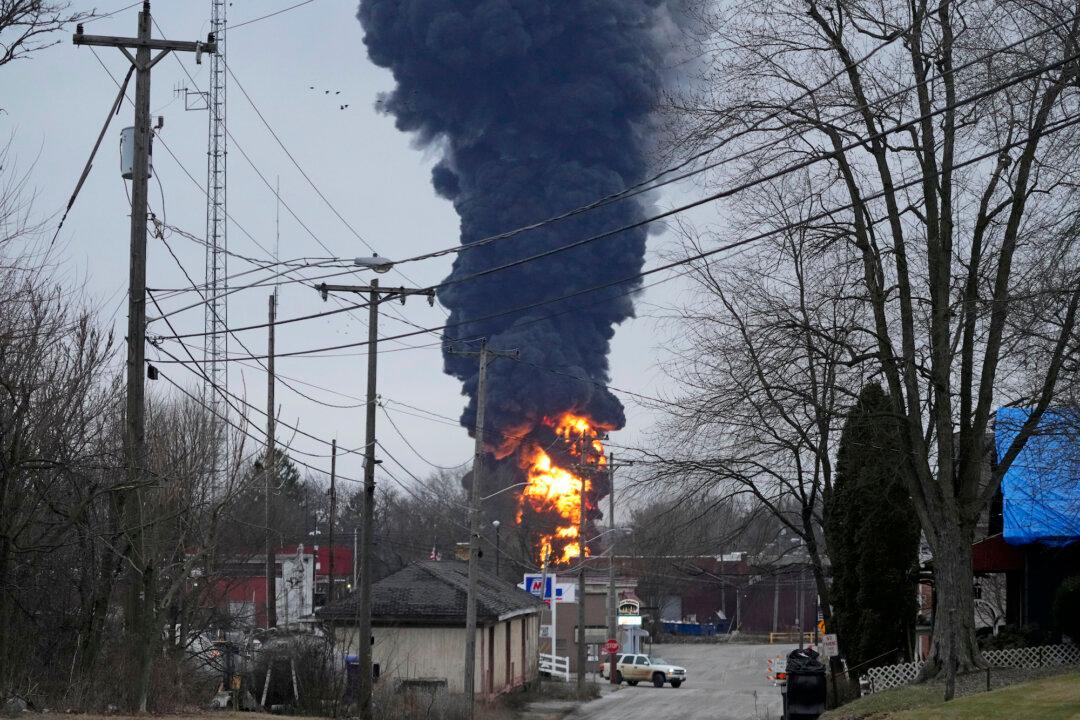Residents of East Palestine, Ohio, impacted by the Feb. 3 Norfolk Southern Railway freight train derailment that caused lingering fires and spilled toxic chemicals will not receive assistance from the Federal Emergency Management Association (FEMA)—at least for now—according to Gov. Mike DeWine.
Almost two weeks after a Norfolk Southern Railway train derailed in the village located just west of the Pennsylvania state line, the Ohio governor requested federal assistance for residents dealing with the aftermath.





